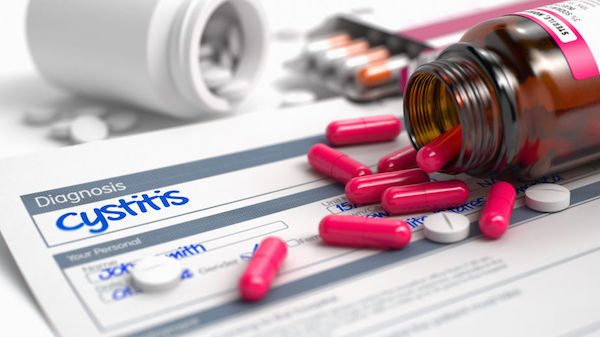Cystitis – or bladder infection – is a common type of urinary tract infection (UTI).

Most bladder infections are caused by strains of E.coli bacteria that are present in the gut, and are transported from the anus to the urethra usually during sexual intercourse. It is more common in women because the urethra is shorter and closer to the anus, making it easier for bacteria to enter the bladder.
If not treated promptly, bladder infections may lead to kidney infection, which may be life threatening. Although less common in men, bladder infection may be a sign of a more serious underlying condition, including an enlarged prostate. Bladder infections should be treated as soon as possible to avoid complications.
What are its symptoms?
Cystitis symptoms include the following:
- Need to urinate frequently
- A burning sensation when urinating
- Urine with a strong, sometimes foul odour
- Cloudy urine
- Increased urination at night
- Bladder spasm
- In severe cases, the above symptoms are accompanied by chills, fever, abdominal pain or blood in the urine.
- In the elderly, symptoms include lethargy, incontinence and/or confusion.
How is it diagnosed?
If you experience any of the above symptoms, see your doctor as soon as possible. A urine test will usually confirm whether you have a bladder infection, and a course of antibiotics can be prescribed. In uncomplicated cases, this course of treatment will clear up symptoms within a few days.
In cases of recurrent bladder infections, a full urological examination may be required to determine whether another medical or anatomical problem is responsible. Tests may include a cystoscopy, which involves inserting a thin tube into the urethra so the doctor can view the bladder.
To examine the kidneys and ureters (the tubes connecting the bladder to the kidneys) an IVP or intravenous pyelogram may be done. This special X-ray technique allows the doctor to view the kidneys, ureters and the bladder. An ultrasound scan of the entire urinary tract may also be done.
What are your treatment options?
Cystitis treatment includes a wide range of antibiotics, and at most, the infection should take a week to clear. It’s important to complete the entire course, and take the medication as prescribed.
Patients with recurring bladder infections may be prescribed low doses of antibiotics for a longer period of time. And if the infection is as a result of a blockage or obstruction (kidney stones or an enlarged prostate), surgery may be needed.
Can it be prevented?
To prevent bladder infections, the following is recommended for men and women:
- Don’t delay urinating, and void completely when you do
- Wear loose underwear, preferably cotton
- Practise good hygiene
- Drink plenty of fluids; cranberry juice may help prevent recurrent bouts, but will not treat an existing infection
- Avoid caffeine and alcohol, as these are known irritants of the bladder.
For women specifically:
- Empty the bladder after intercourse
- Avoid using vaginal deodorants, douches, perfumed soaps and bubble baths – these may irritate the urethra making it more vulnerable to infections
- If you use a diaphragm for contraception, make sure it fits properly and you don’t leave it in for too long
- Wipe yourself from front to back to prevent bacteria from the anus getting into the urethra.
If you're struggling with cystitis, consult your doctor and Clicks pharmacist.
Note: Pregnant women are more susceptible to UTIs, so if you experience any of the symptoms mentioned during pregnancy, see your doctor immediately.
Shop now at Clicks.co.za for bladder health aids
Make use of the convenience of online shopping to purchase products to support your bladder health.
IMAGE CREDIT: 123rf.com
